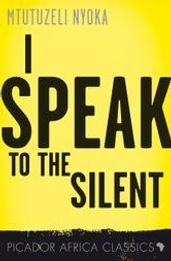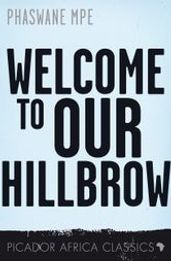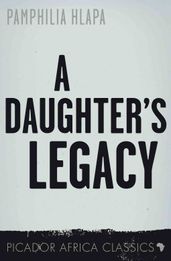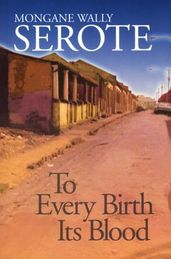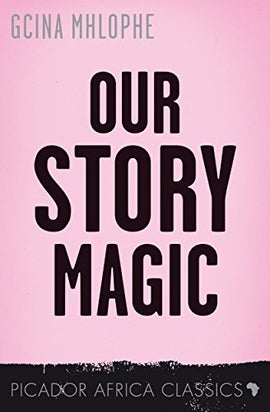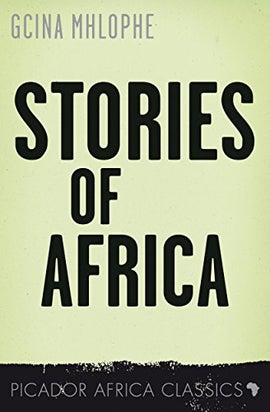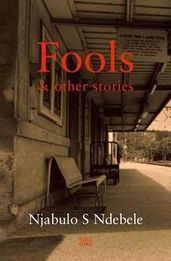Homegrown classics: eBooks marked down for Heritage Month
Celebrate Heritage Month with Picador Africa Classics, a collection of exceptional African writing now available on eBook at a marked down price. This important digital archive serves to highlight great work that receives little or no attention and aims to ensure the longevity of our diverse literary heritage by keeping many of the out-of-print literary treasures alive in a digital form.

The Picador Africa Classics were launched in 2014, and it aims to build a catalogue of exceptional titles that may be out of print or lack presence in digital form. It builds on the historical concept of the African Writers Series as well as the works of publishers such as Ravan Press, which showcased works of excellence by African writers. The focus of the series is South African fiction titles and ‘classic’ works of non-fiction. This important digital archive also serves to highlight great work that receives little or no attention.
Get these classics on eBook at only $2.99
Jozi
by Perfect Hlongwane
I Speak to the Silent
by Mtutuzeli Nyoka
Walter Hambile Kondile is the typical ‘good native’ of his generation, poorly educated and subservient, brought up to know his place and believe that ‘it was God’s design for the white man to rule over me’.
Then Kondile’s beloved daughter, Sindiswa, a young struggle activist, goes missing in exile. Kondile’s search leads him to Lesotho and grim discoveries of betrayal that shatter forever his own ‘complicity of silence’, committing him to an irrevocable path of no return.
This is a compelling and beautifully written novel by Mtutuzeli Nyoka, a powerful storyteller who tells his history as he sees it.
Welcome to Our Hillbrow
by Phaswane Mpe
A courageous and compelling journey through the chaotic and hyper-real world of Hillbrow, South Africa.
Welcome To Our Hillbrow is an exhilarating and disturbing ride through the contradictory, alluring and painful realities of post-apartheid South Africa. Set in the vibrant and chaotic microcosm of Hillbrow, this novel fearlessly confronts the shattered dreams of youth, the unpredictable costs of sexuality, the specter of AIDS, rampant xenophobia, and the omnipresent violence that too often cuts short the promise of young lives.
Infused with the rhythms of the inner city pulsebeat, Phaswane Mpe's honest and expansive vision links Hillbrow, rural Tiragalong and Oxford, spilling out the guts of Hillbrow-living with the same intimate knowledge and energy with which the Drum writers immortalized Sophiatown. Transcending death itself, the novel flows into an ancestral realm, reflecting an Africanist understanding of the life continuum.
Brooding Clouds
by Phaswane Mpe
Brooding Clouds is a posthumous collection of short stories and poems that were written as a prequel to Phaswane Mpe's acclaimed bestseller, Welcome to Our Hillbrow. In these thematically linked stories, we meet the organic roots of the emblematic characters and concerns of the later novel.
Written with an expressive simplicity that evokes the rural soul of tiny Tiragalong and its neighboring village of Nobody, Mpe's stories speak out strongly on issues close to his heart. The poems form a tandem narrative that is gritty, topical, observant, and which articulates the dilemmas of inner city living, along with the broader conundrums of Tiragalong, Hillbrow, and South Africa. The Brooding Clouds collection is a gem of creative achievement that stands as a poignant tribute to the tremendous talent of a writer cut down much too soon.
A Daughters Legacy
by Pamphilia Hlapa
A Daughter’s Legacy is the story of Kedibone’s journey from childhood to parenthood, from the dusty streets of her home village to the modern worlds of university and working life.
Determination and resilience battle with fear and insecurity in Kedibone’s searing engagement with relationships and personal growth. This novel is a bold and necessary statement that exposes the taboos and abuse that a male-dominated culture allows, if not engenders. It breaks the silence and connivance in a way that is seldom done.
The World of Nat Nakasaa

To Every Birth Its Blood
by Mongane Wally Serote
A seminal work that brings to life the brutality and awakening of 1970s apartheid South Africa.
To Every Birth Its Blood is a lyrical, empathetic and hauntingly powerful debut novel by Mongane Wally Serote. Through a range of vivid characters, Serote explores the subjective experiences of those who lived, loved and struggled in 1970s apartheid South Africa. With piercing insight, he depicts the brutality of state violence, from beatings and arrests to solitary confinement and exile. Against this backdrop, the novel traces a shift from black apathy to political awakening and the rise of violent dissent.
Originally published in 1981, To Every Birth Its Blood remains a seminal work that captures the birth of a revolutionary society. Serote's vivid detail and unflinching portrayal make this a must-read for anyone seeking to understand one of the darkest chapters in South Africa's history.
Our Story Magic
by Gcina Mhlophe
Our Story Magic is a collection of enchanting and compelling tales written by Gcina Mhlophe, South Africa’s most popular performance storyteller. The illustrations are by artists from Mhlophe’s home province of KwaZulu-Natal. Read and share these eleven stories with the love that went into creating them.
Stories of Africa
by Gcina Mhlophe
Stories of Africa is a folklore story collection that offers a feast of enjoyment for young South African readers, with ten enchanting tales, steeped in the imaginative richness of African oral tradition. Told with inimitable aplomb by Gcina Mhlophe, South Africa’s most popular performance storyteller, and illustrated by a lively selection of KwaZulu-Natal artistic talent, Stories of Africa is a classic to delight readers of all ages and cultures.
Fanie Fourie's Lobola
by Nape 'a Motana
Fanie Fourie is a true blue boere seun with an unrepentantly macho approach to love and life in general. But his world view undergoes an abrupt reinvention when he is 'bitten by the louse and bedbug of love' and falls head-over-heels for Dimakatjo Machabaphala, a beautiful black nurse. In pursuit of true love, these lovers must steer a path through the challenging intricacies of inter-cultural negotiation and leap the hurdles of racial bigotry, tenacious former lovers, and the like, finally to emerge triumphant as traditionally united man and wife. This delightful novel is filled with naughty humor and ironic reversals of stereotype.
With a deft and humorous pen, the author evokes the colliding worlds of traditional and contemporary culture in a South Africa still struggling to renegotiate roles and relationships and shake off the complexes and prejudices of the past.
Shirley, Goodness and Mercy
by Chris van Wyk
Shirley, Goodness & Mercy is a heart-warming, yet compellingly honest story about a young boy growing up in Newclare, Coronationville and Riverlea during the apartheid era.
Despite Van Wyk’s later becoming involved in the ‘struggle’, this is not a book about racial politics. Instead, it is a delightful account of one boy’s special relationship with the relatives, friends and neighbours who made up his community, and of the important coping role laughter and humour played during the years he spent in bleak and dusty townships.
In Shirley, Goodness & Mercy Chris van Wyk – poet, novelist and short story writer – had created a truly remarkable work, at once both thought-provoking and vastly entertaining.
Fools and Other Stories
by Njabulo S. Ndebele
Fools, the title story in this collection, is a tale of generations in the struggle against oppression. Zamani is a middle-aged teacher who was once respected by the community as a leader of the future. Then he disgraced himself, and now he's haunted by the impotence of his present life. A chance meeting brings him up against Zani, a young student activist whose attempts to kindle the flames of resistance in Charterston Location are ludicrously impractical. Both affection and hostility bind Zamani and Zani together in an intense and unpredictable relationship. Finding each other means finding the common ground of their struggle. It also means reexamining their lives - and, notably, their relationship s with women.'The Test', 'The Prophetess', and 'The Music of the Violin' all deal with formative experiences in a township childhood: an act of courage and endurance; a close encounter with an awe-inspiring old woman; a choice which must be made between the narrow ambitions of middle-class parents and the challenge of the township streets, at once more inviting and more dangerous.'Uncle' celebrates the gift of one generation to another: a gift that mingles music with other adventures of the spirit, recklessness with resourcefulness, and laughter with wisdom.
Rediscovery of the Ordinary
by Njabulo S. Ndebele
Njabulo S. Ndebele's essays on South African literature and culture initially appeared in various publications in the 1980s. They encompass a period of trauma, defiance, and change the decade of the collapse of apartheid and the challenge of reconstructing a future.
In 1991, the essays were collected under the current title of Rediscovery of the Ordinary: Essays on South African Literature and Culture. Here, this collection is reprinted without revision, together with an interview provoked by Albie Sachs paper Preparing Ourselves for Freedom. That it is possible to republish the essays without revision so many years after their first appearance is a tribute to Ndebele's prescience. The issues that he raises and the questions that he poses remain key to a people who, after apartheid, have started to rediscover the complex ordinariness of living in a civil society.

